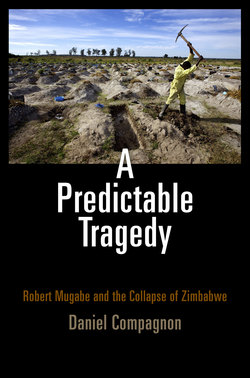A Predictable Tragedy

Реклама. ООО «ЛитРес», ИНН: 7719571260.
Оглавление
Daniel Compagnon. A Predictable Tragedy
Отрывок из книги
A Predictable Tragedy
Robert Mugabe and the Collapse of Zimbabwe
.....
Violence resumed in the fifteen constituencies that returned a ZAPU MP, and it did not stop completely until the Unity Accord was signed on 22 December 1987, becoming totally effective with the ruling party’s 1989 congress, when ZAPU and ZANU structures were amalgamated. After the 1985 elections, Mugabe knew that he could not eradicate ZAPU so easily and that he would have to co-opt ZAPU leaders into the ruling party, but he wanted them as submissive junior partners not as equals. There are interesting similarities between his attitude toward ZAPU at the time and his tactics toward the MDC after the 2002 presidential election, and even more so in the 2008 power-sharing negotiations. Mugabe has never been willing to negotiate with his opposition and share power on a fair basis—as demonstrated again throughout 2009 by his biased implementation of the September 2008 agreement on the inclusive government. In 1986 pressure was put on ZAPU through the detention of MPs and Bulawayo city councillors and scores of supporters, while negotiations were brokered between the two parties by church and civic leaders. The breakdown of the unity talks announced by Mugabe in his 1987 New Year’s message, the subsequent banning of all ZAPU meetings, and the closure of their offices clearly signaled that no less than a political surrender was demanded. ZAPU leaders had no other option given the amount of suffering in the Ndebele populated provinces.68 Besides, they had no contingency plans to resume fighting and could expect no support from abroad, especially from the neighboring states. Zimbabwe had by then emerged forcefully as a new leader of the Front-Line States fighting apartheid. In addition, most of the ZAPU leaders were tired of war as much as the people and wanted to enjoy the spoils of state power. The Accord secured their co-option into Cabinet, Politburo, and Central Committee.
Therefore, Mugabe’s war of attrition in Matabeleland was intended to force a merger on ZANU’s terms, which is precisely what the “Unity Accord”—a misnomer emphasizing the propaganda line that served to delegitimize any emerging opposition afterward—amounted to.69 Although the Unity Accord brought the state violence to an end, it also silenced voices from Matabeleland: the need to foster unity became an excuse for not acknowledging the past. Until the publication of the CCJP/LRF report in 1997, the subject was taboo even for Ndebele intellectuals.70 As a result of such “unity” ZAPU leaders were politically emasculated and they never again enjoyed significant influence within ZANU-PF. Joshua Nkomo’s elevation to the vice presidency was purely ceremonial and counterbalanced by the appointment of Simon Muzenda, Mugabe’s dedicated lieutenant, to the same position. Although Politburo and Central Committee members coming from ZAPU have sometimes been credited for a moderate influence in the ruling party politics (especially Dumiso Dabengwa or John Nkomo), they never confronted Mugabe and were easily whipped into line. Joseph Msika’s and John Nkomo’s official endorsement of the violent farm occupations since they began in 2000—in contradiction to their alleged inner feelings—underlines their political weakness. So by the late 1980s, Zimbabwe was a de facto one-party state and the situation remained similar until June 2000, when the MDC emerged as an effective contender for power.
.....